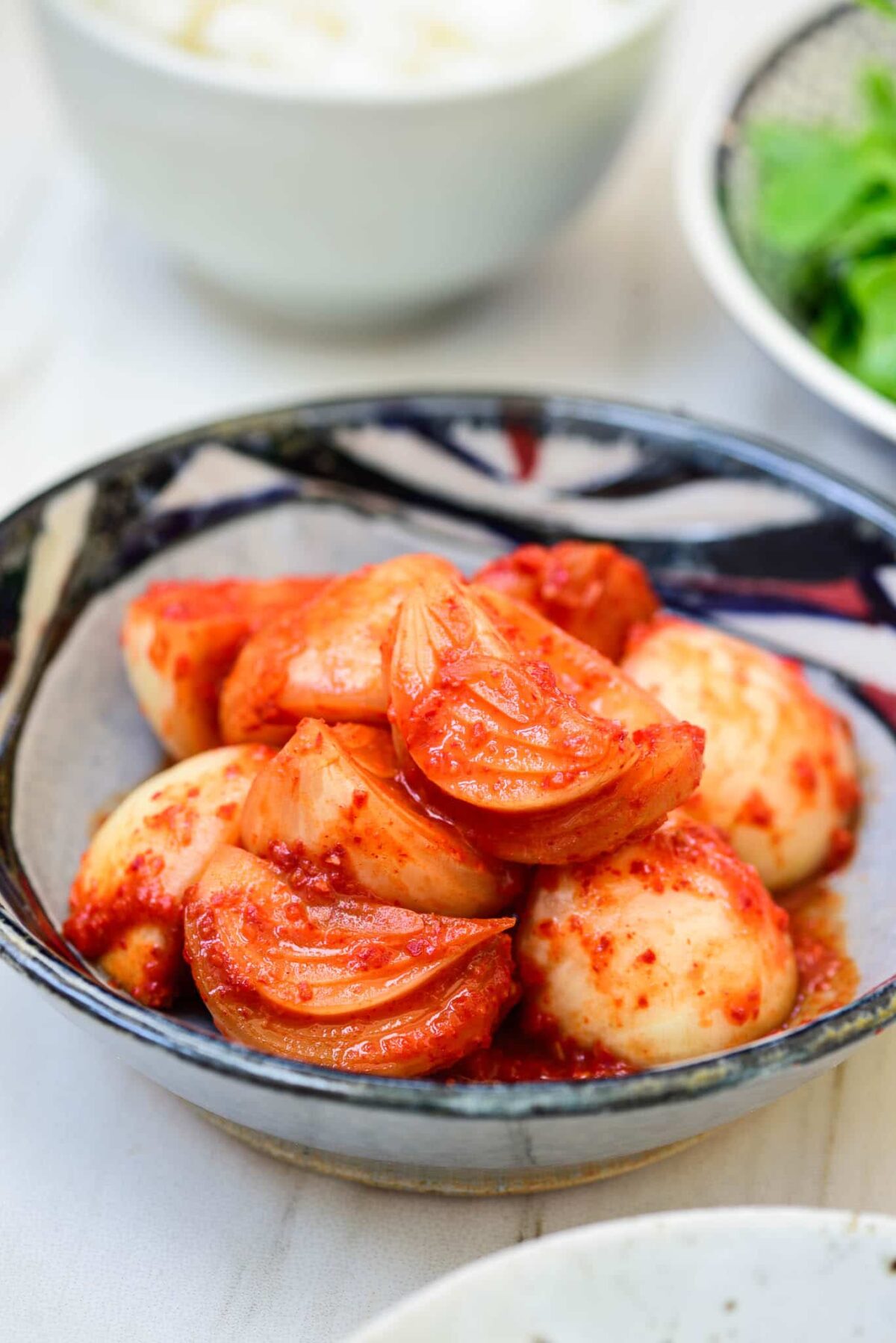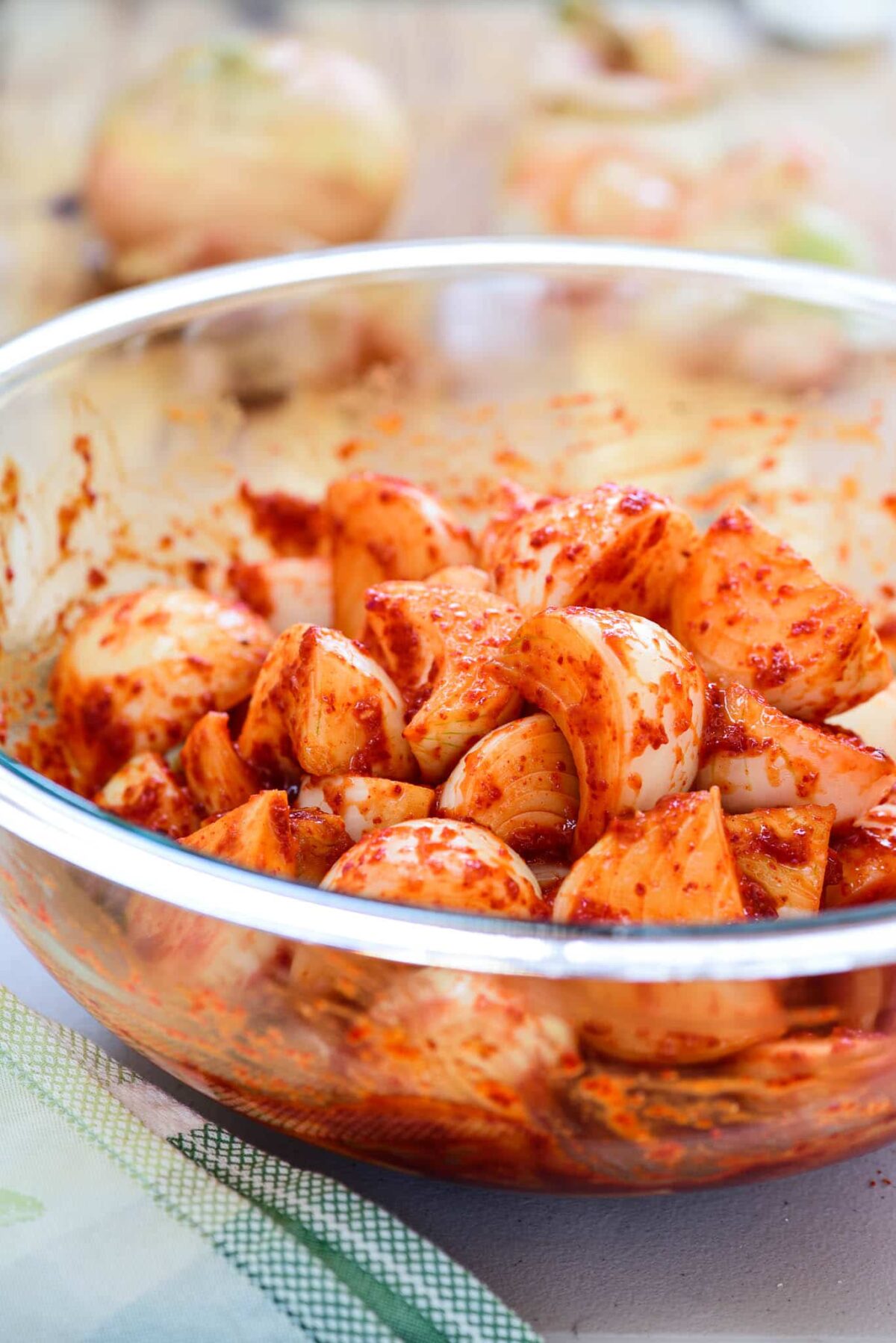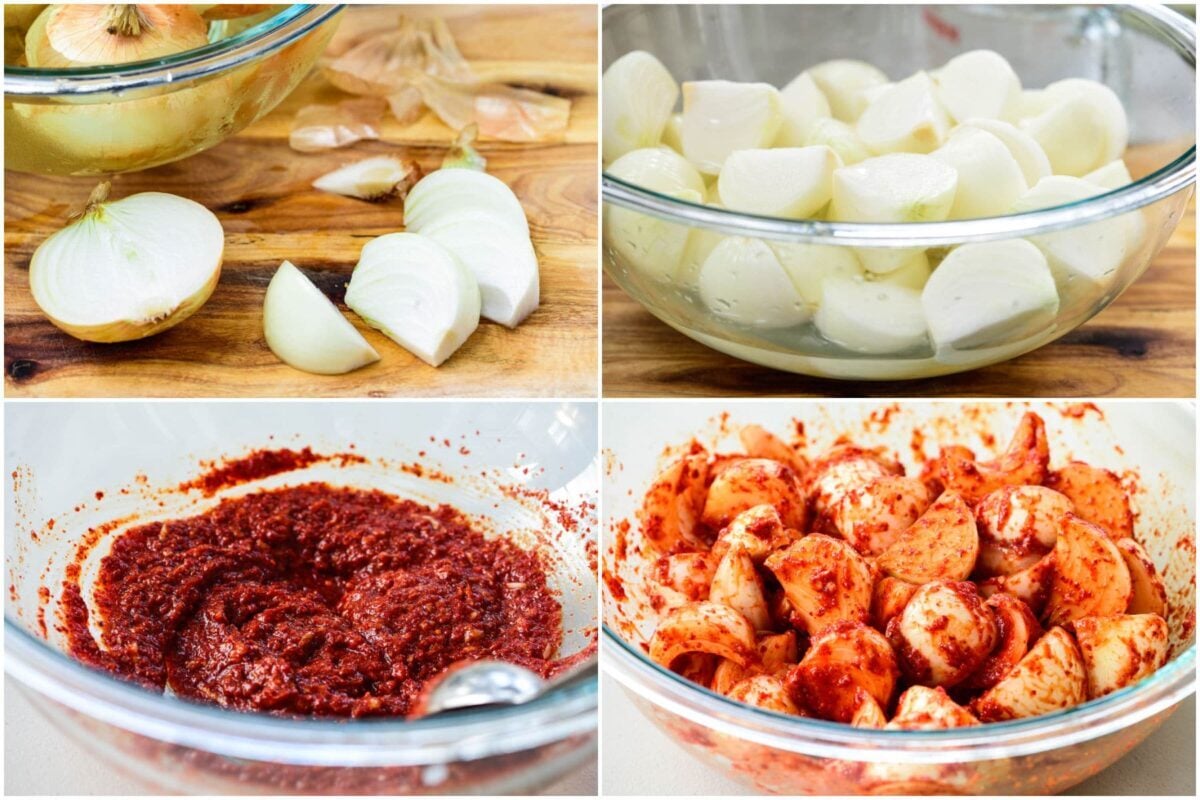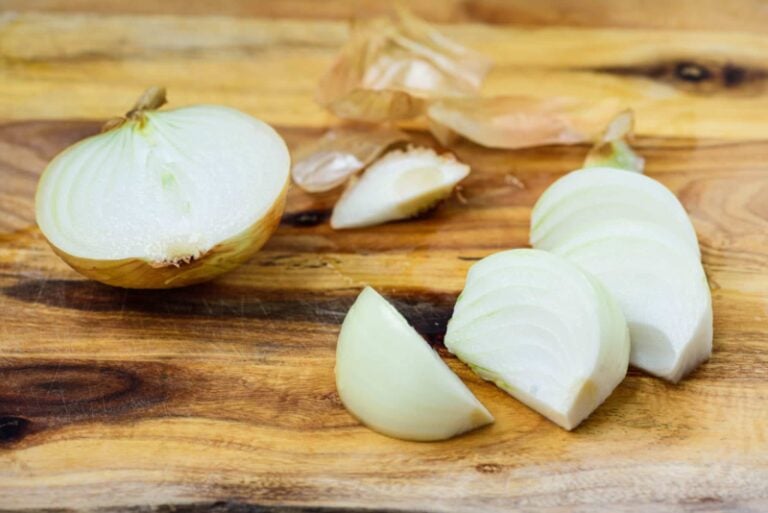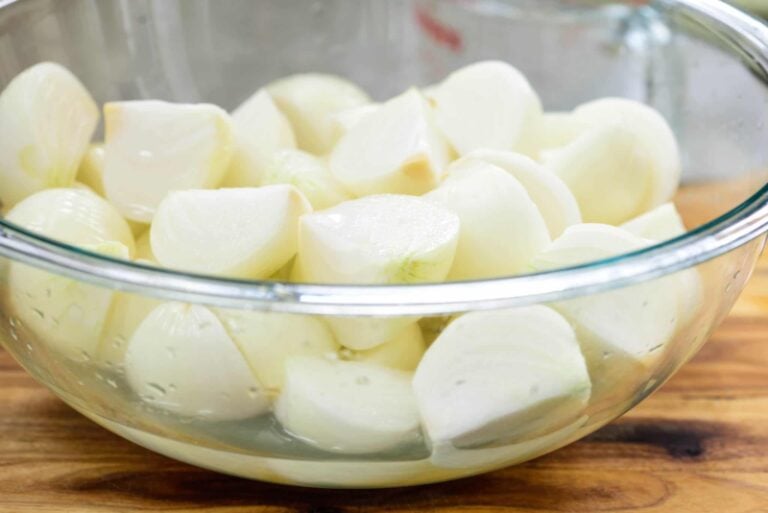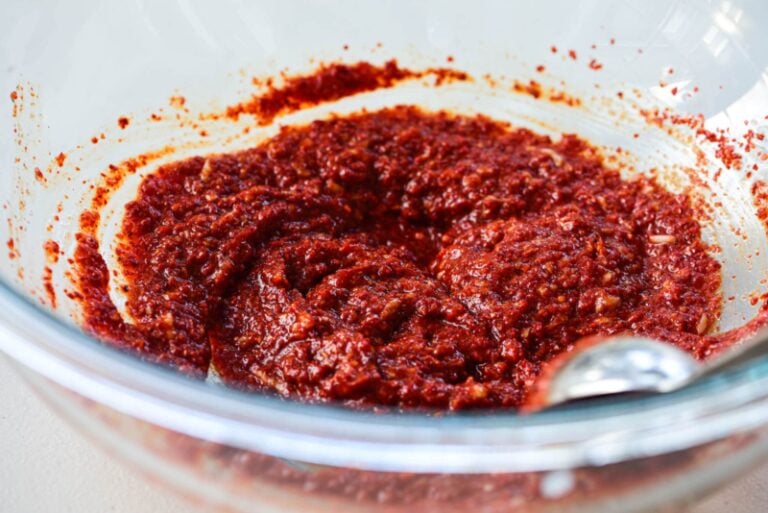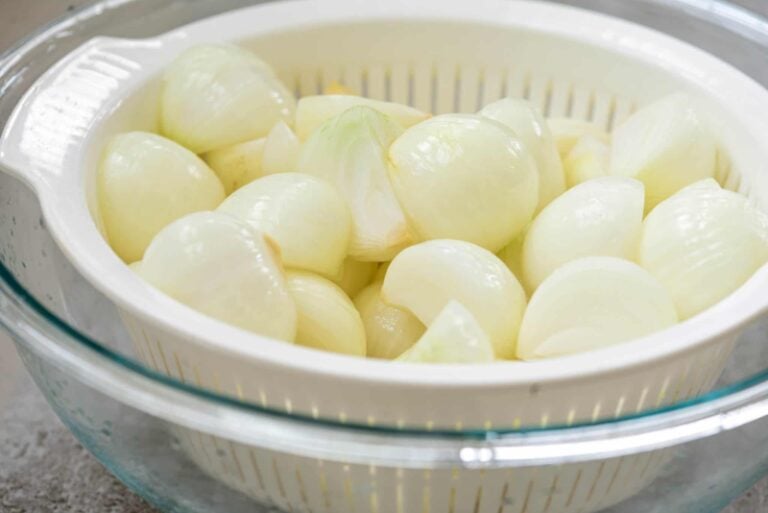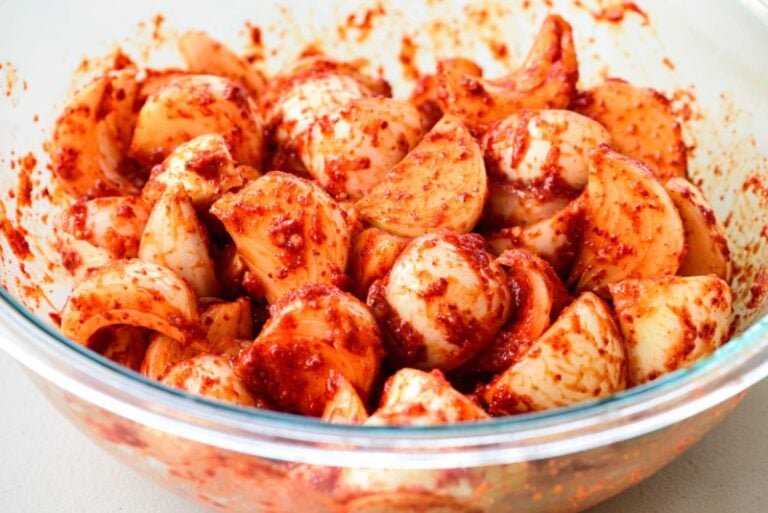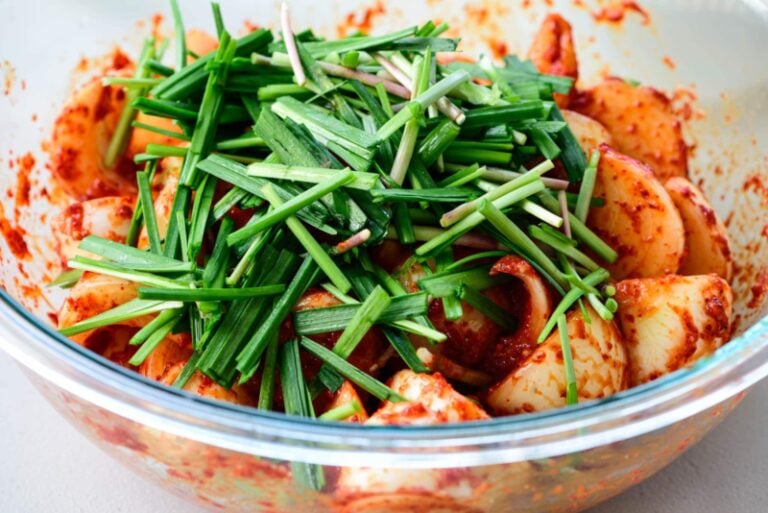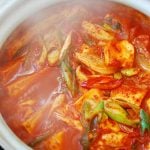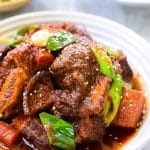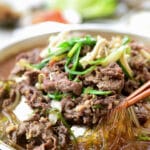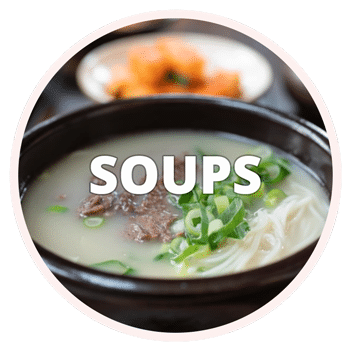A simple kimchi made with sweet onion! Easy, delicious, and great with Korean BBQ dishes.
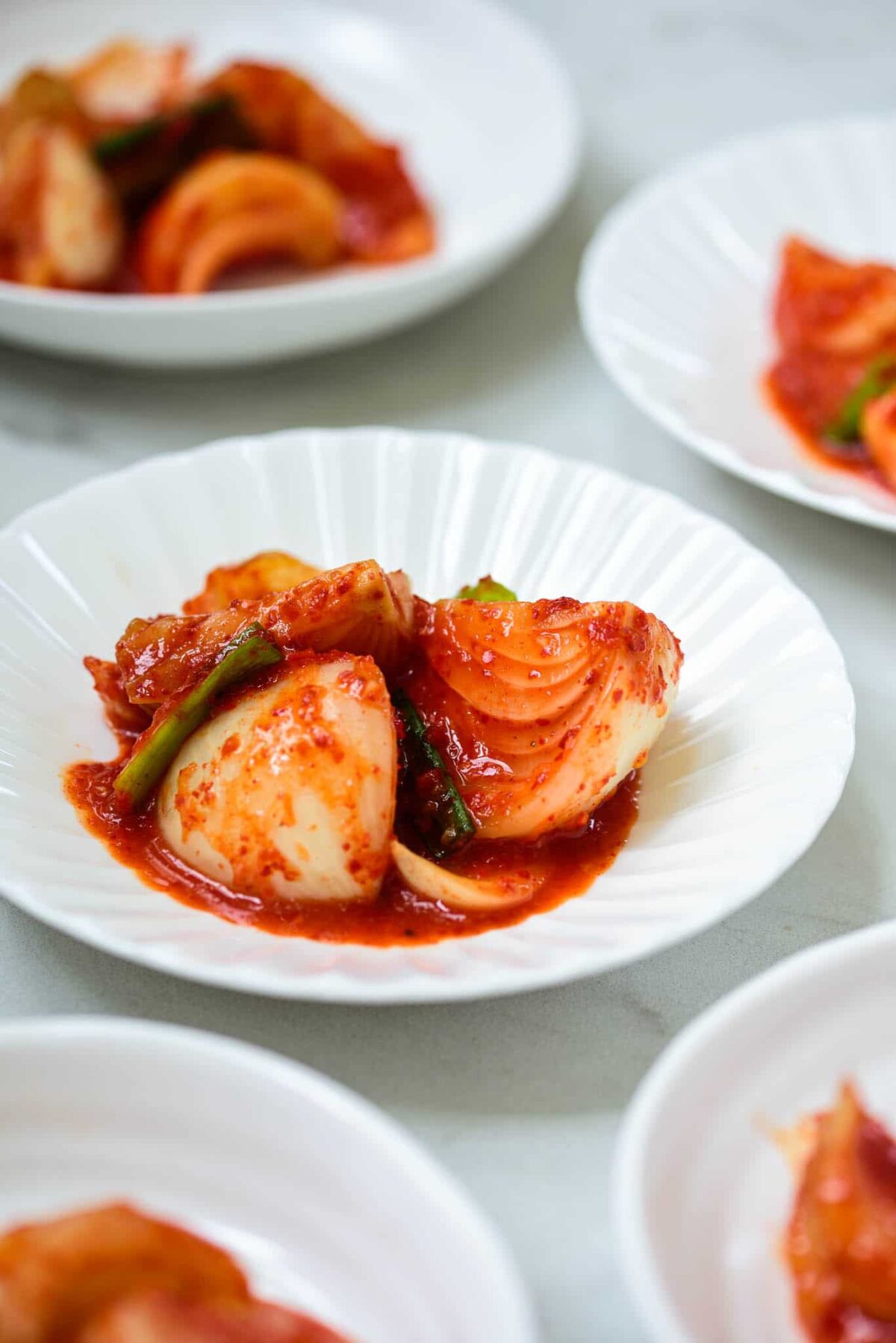
Onions are one of the basic ingredients in many dishes around the world. They are versatile and available all year long. However, when spring comes around, freshly-harvested onions are tender and sweet. Onion kimchi (yangpa kimchi, 양파김치) is a spring favorite in Korea along with pa kimchi (파김치). This crunchy, spicy, and delicious onion kimchi pairs especially well with Korean BBQ dishes.
While any onion type is fine for making kimchi, a mild, sweet variety is best — the type you’d use in your salad. My favorite is Georgia grown small Vidalia onions, which usually come in 3-pound bags around here.
Onions lose some of their bite when they are salted and further mellow as the kimchi ferments while developing more sweetness.
How to make onion kimchi
The most difficult part of making onion kimchi probably is peeling and cutting. To avoid tearing, put the onions in icy cold water for about 30 minutes before peeling. Cut onion in half from the tip to the bulb end, and remove the outer skin. Place the onion half, cut side down, on a cutting board, and cut it lengthwise at a slight angle into 2 or 3 even wedges. This will result in 4 to 6 pieces per onion depending on its size.
Since this is kimchi, the onions need to be pre-salted. Simply soak the onion wedges in salt water for about an hour.
Onion kimchi doesn’t need much of other aromatic vegetables, but a little bit of scallions and/or garlic chives add a nice pop of color. I don’t use garlic or ginger in this kimchi, but feel free to add some if you like.
For the seasonings, onion kimchi can be seasoned with fish sauce (myulchiaekjeot or kkanari aekjeot). I like to use a combination of fish sauce and saeujeot (salted and fermented shrimp). As long as you use sweet onion, there’s no need for an additional sweetener, but a little bit of sugar will help depending on the sweetness of your onion.
For a vegan version, you can substitute the fish sauce and salted shrimp with soup soy sauce.
For more Korean cooking inspirations, follow along on YouTube, Pinterest, Twitter, Facebook, and Instagram.
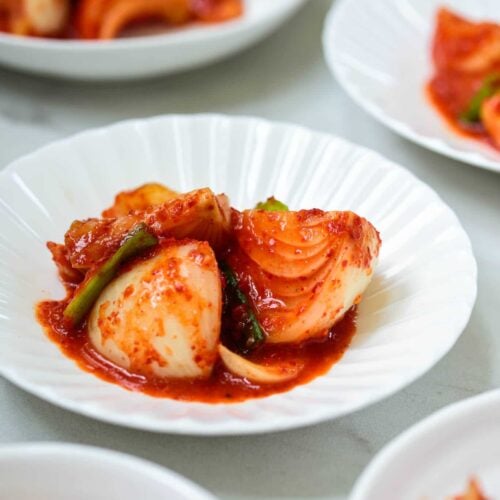
Ingredients
- 3 pounds onions (small, sweet variety such as Viidalia)
- 3 tablespoons coarse sea salt (use 2T if using fine tablesalt) See note
- 2 scallions (and/or 2 ounces of garlic chives) - optional
Seasonings:
- 1/3 cup gochugaru, 고추가루
- 2 tablespoons fish sauce
- 2 tablespoons saeujeot (Korean salted and fermented shrimp) or 2T more fish sauce
- 1 tablespoon sweet rice flour (chapssal garu, 찹쌀가루) or regular rice flour or all purpose flour
- 1 tablespoon sugar - optional but use 1-2 T if not using sweet onions
Instructions
- To avoid tearing, put the onions in icy cold water for about 30 minutes before peeling. Cut onion in half from the tip to the bulb end, and remove the outer skin. Place the onion half, cut side down, on a cutting board, and cut it lengthwise at a slight angle into 2 or 3 even wedges.
- Dissolve the salt in 2 cups of water and pour over the onions. Let sit for about an hour, flipping them over half way through.
- Whisk together the glutinous powder and 1/2 cup of water. Simmer over low heat, stirring occasionally, until it thickens to a thin paste. Let it cool. Then, mix all the seasoning ingredients in a large bowl.
- Drain the onions from salt water. Rinse the onion in fresh water once, and drain well.
- Add the onions, and toss everything well until the onion slices are evenly coated with the seasonings.
- Throw in the optional scallion and/or garlic chives. Store the kimchi in an airtight container. Keep it at room temperature for a day, and then refrigerate. Onion kimchi can be eaten right away, but the flavor develops as it ferments over a week or two in the fridge.


